E-böcker / Historia
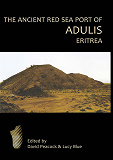
The Ancient Red Sea Port of Adulis, Eritrea
The port of Adulis was one of greatest significance in Antiquity. It is best known for its role in Aksumite trade during the fourth - seventh centuries AD. However it is also a maj ...
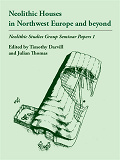
Neolithic Houses in Northwest Europe and beyond
A digital reprint which makes available again the first publication of the Neolithic Studies Group, containing papers given to a special colloquium on the `structures' of Neolithic ...
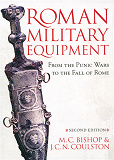
Roman Military Equipment from the Punic Wars to the Fall of Rome, second edition
Rome's rise to empire is often said to have owed much to the efficiency and military skill of her armies and their technological superiority over barbarian enemies. But just how 'a ...

Harrogate and Ripon in the Great War
Harrogate and Ripon, just a few miles apart in one of the most beautiful localities in Yorkshire, have rarely had their contributions to the Great War told all together, in one vol ...

Reading in the Great War 1917-1919
Reading in the Great War 1917-1919 looks at life in an important industrial and agricultural town in the south of England. The book charts the changes that occurred in ordinary peo ...
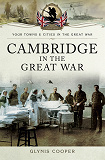
Cambridge in the Great War
Cambridge is one of the most famous universities in the world and its library is one of only five copyright libraries in the UK. At the start of the twentieth century it was a priv ...
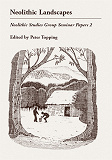
Neolithic Landscapes
Reprint of another classic Neolithic Studies Group volume. 'It is a sign of the intellectual health of a specialist study group that its deliberations can generate collections of p ...
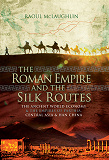
The Roman Empire and the Silk Routes
This book demonstrates the importance of Far Eastern trade to the Roman economy and Rome's place in the ancient world economy all along the Silk Road Routes.The Roman Empire and th ...
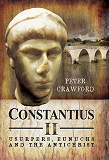
Constantius II
The reign of Constantius II has been overshadowed by that of his titanic father, Constantine the Great, and his cousin and successor, the pagan Julian. However, as Peter Crawford s ...

Britain’s Declining Secondary Railways through the 1960s
This is an evocative selection of high quality colour views, each of which recaptures the lost age of Britain's branch lines and secondary railways, of which so many were axed foll ...
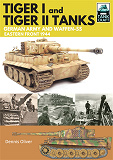
Tiger I and Tiger II: Tanks of the German Army and Waffen-SS
In spite of the relatively small numbers produced, the Tiger I and Tiger II tanks are arguably the most famous armored fighting vehicles of the Second World War. This book, the fir ...
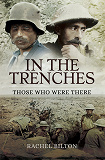
In the Trenches
A wide range of personal experiences are covered in the seventeen chapters of this book. All the stories are written by the participants who describe exactly what happened to them ...

Air Battle for Burma
After a long series of crushing defeats by the apparently unstoppable Japanese air and ground forces, the eventual fight back and victory in Burma was achieved as a result of the e ...

Aces, Airmen and The Biggin Hill Wing
During the Second World War, RAF Biggin Hill was one of Fighter Command’s premier stations. Throughout the Battle of Britain and beyond, it became a hotbed of talent and expertise, ...

Surviving the Japanese Onslaught
These are the firsthand memoirs of the late William Albert Tate (W.O, RAF Bomber Command) framed within the factual history of his service career in the Royal Air Force between the ...
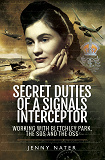
Secret Duties of a Signals Interceptor
The Second World War upended many lives, disrupting patterns and routines and bringing an array of terrifying new dangers with it. For Jenny Nater, the war brought great sadness bu ...

The Story of Sheffield at War
This is a unique account of the impact that the Second World War had on the city of Sheffield. Soon after the declaration of war, the government and the people of Sheffield realize ...
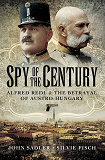
Spy of the Century
‘The Redl Affair had everything: sex, espionage, betrayal, a fall from greatness and a sensational climax in which Redl went to his death like a figure of high tragedy.’ The New Yo ...
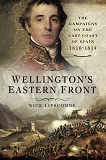
Wellington's Eastern Front
At last, in this absorbing and authoritative study, the story of the epic struggle on Spain’s eastern front during the Peninsular War has been told. Often overlooked as not integr ...

Cambridgeshire Kitcheners
In the opening months of the First World War, 1,500 men from Cambridgeshire came forward to serve their country as a battalion in Kitchener's New Army. They came from the city and ...
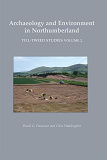
Archaeology and Environment in Northumberland
Eventful, influential and absorbing, the early history of Northumberland is a fascinating story that has rarely been brought together under one cover. In this authoritative histori ...
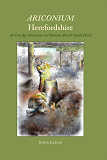
Ariconium, Herefordshire
The Roman 'small town' of Ariconium in southern Herefordshire has long been known as an important iron production centre but has remained very poorly understood. The town is sugges ...
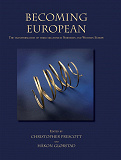
Becoming European
It can be argued that elements of European heritage can be identified not only as a national strategy of the present but also as a process in prehistory - the cultural and politica ...
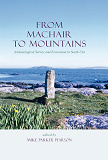
From Machair to Mountains
South Uist in the Outer Hebrides has some of the best preserved archaeological remains within Britain and even further afield. Three distinct ecological zones - grassland machair p ...
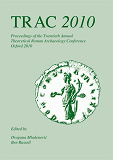
TRAC 2010
This volume contains ten papers reflecting current aspects of the debate in theoretical Roman archaeology. They include papers on what the pottery finds from the Nepi Survey Projec ...
